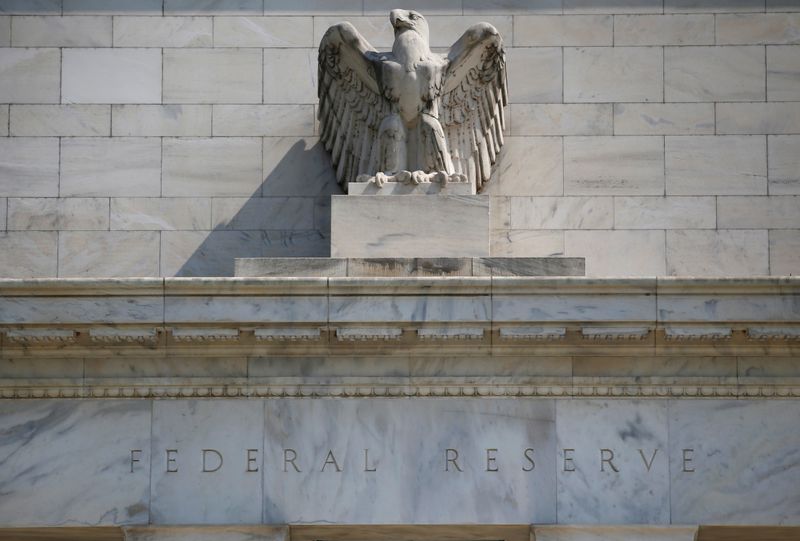By Howard Schneider and Ann Saphir
(Reuters) - The U.S. Federal Reserve on Monday rolled out an extraordinary array of programs to backstop an economy reeling from sweeping restrictions on commerce that scientists say are needed to slow the coronavirus pandemic and ultimately keep more people safe.
For the first time, the Fed will back purchases of corporate bonds, backstop direct loans to companies and "soon" will roll out a program to get credit to small and medium-sized business. It also said it will expand its asset purchases by as much as needed to stabilise financial markets.
The series of actions marks a massive intervention by the U.S. central bank beyond the financial markets, where it has so far concentrated its firepower, into the real U.S. economy.
"It's their bazooka moment," said Russell Price, chief economist at Ameriprise Financial (NYSE:AMP) Services in Troy, Michigan.
Nearly a third of the U.S. population has been urged to stay indoors as governors from California to New York mandate "social distancing" and the shutdown of non-essential businesses to slow the person-to-person spread of the virus.
With customers disappearing rapidly, businesses starved of cash may be able to tap into the Fed's "lifeline" to stay afloat while the shutdowns continue, said University of Oregon economics professor Tim Duy.
"The Fed is still working to maintain the flow of credit because they know what happened during the Depression (when) too many firms went under," Duy said. "The more damage that happens, the harder it is going to be to restart the economy."
Still, he said, without massive fiscal aid such efforts won't be enough to stem the tide of what economists polled by Reuters estimate could be a million jobless claims logged across the nation inside of a week, with more to come.
U.S. stocks slid Monday and yields on U.S. Treasuries fell after the announcement, as U.S. lawmakers struggled to reach agreement on a far-reaching coronavirus stimulus package on Monday after falling short on a deal over the weekend.
U.S. corporate credit investors for their part welcomed the Fed's move, sending up prices of U.S. investment-grade corporate bond exchange-traded funds.
Under the new programs, the Fed will lend against student loans, credit card loans, and U.S. government backed-loans to small businesses, and back loans to larger employers in what amounts to four years of bridge financing.
Hundreds of thousands of people have already filed for unemployment insurance in California alone, the state's governor said at the weekend. Many analysts are projecting the U.S. economy to shrink faster next quarter than it did in any quarter during the Great Recession.
In a statement the Fed said the effort, approved unanimously by members of the Federal Open Market Committee, was taken because "it has become clear that our economy will face severe disruptions" as a result of the health crisis. "Our nation's first priority is to care for those afflicted and to limit the further spread of the virus."
The Fed last week slashed borrowing costs to zero and took other emergency steps to keep the commercial paper, Treasury and foreign dollar funding markets functional.
“This is the Fed’s all-out effort to ensure that the business sector and households can continue on,” said Sam Bullard, senior economist for Wells Fargo (NYSE:WFC) Securities.

“The Fed is doing everything they can."